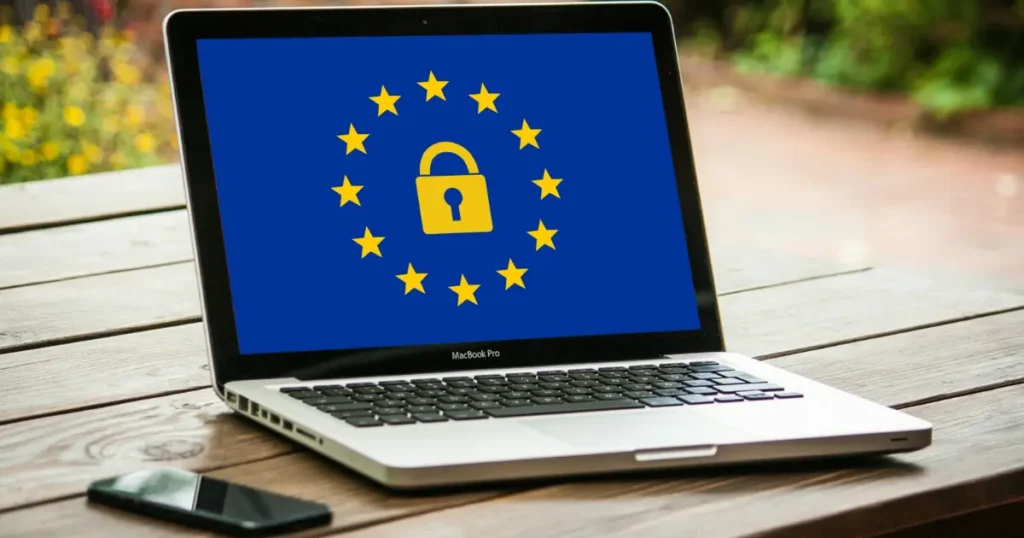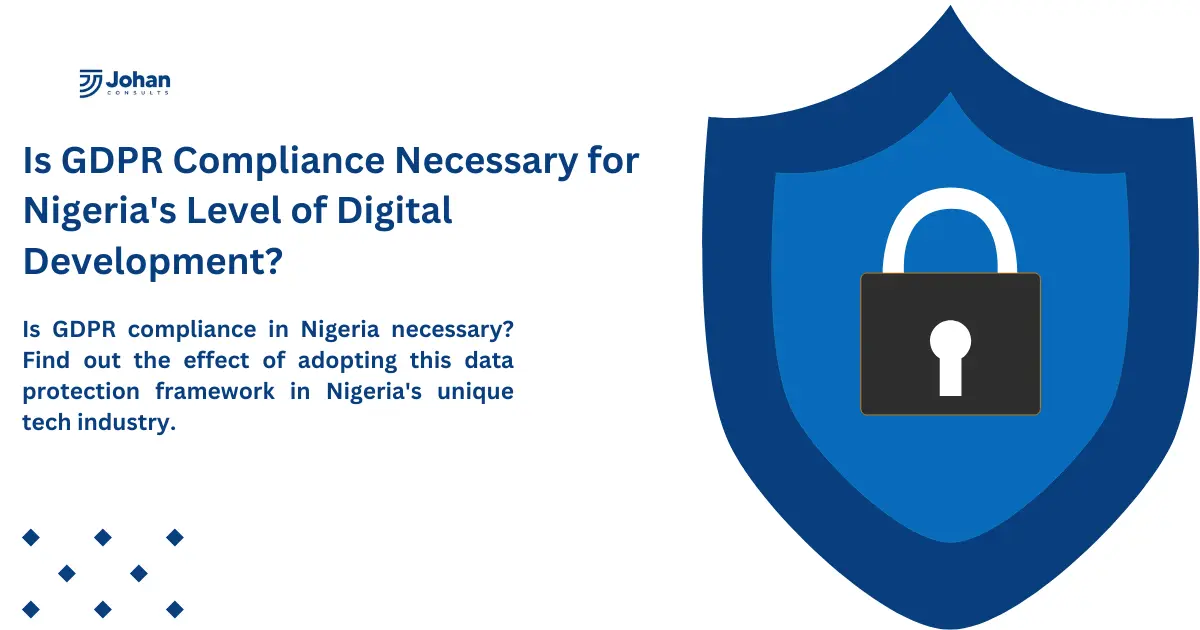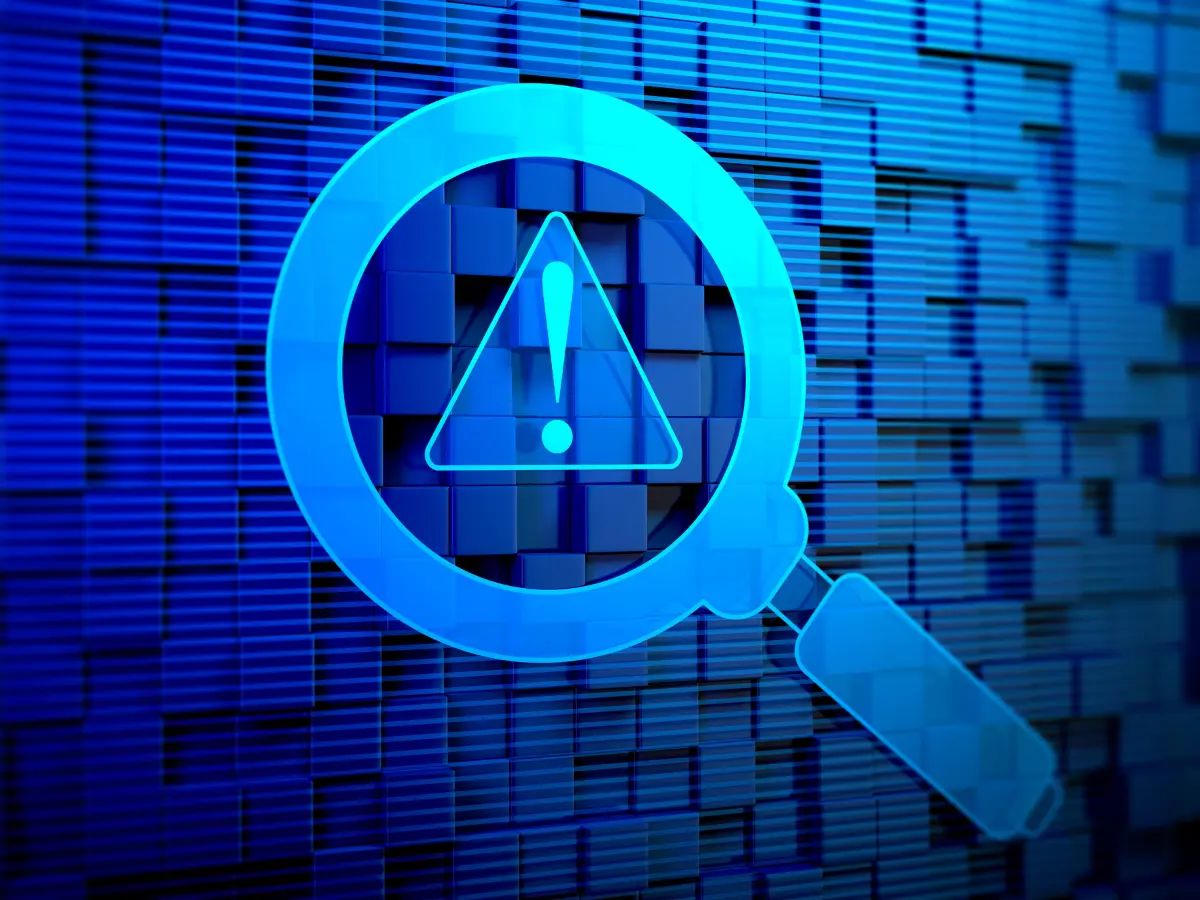The General Data Protection Regulation (GDPR) has seen a significant turning point for data protection and privacy worldwide. As Nigeria’s tech industry continues to grow, the question arises: is GDPR compliance in Nigeria necessary for the country’s current level of digital development? In this article, we’ll explore the implications of GDPR compliance for Nigeria. We’ll also try to discuss its benefits and if it’s necessary for the country’s current digital stage.
What is GDPR Compliance?
GDPR (General Data Protection Regulation) compliance refers to the adherence to a set of regulations established by the European Union (EU). These regulations help to protect the personal data and privacy of individuals within the EU. The GDPR aims to give individuals control over their personal data and to simplify the regulatory environment for businesses.
Brief Overview of Nigeria’s Tech Industry
Nigeria is quickly becoming a digital country. Currently, more people are using the internet and mobile phones, leading to an increase in online activities like shopping and digital payments. The country is also home to many new tech companies and innovation centers.
However, Nigeria’s digital growth faces some challenges. For example, not enough people have access to reliable electricity or internet connection. There is also a shortage of skilled workers in areas like data protection and online security. Additionally, the country’s laws and regulations around data protection need to be stronger and clearer.
To address these challenges, Nigeria has established strategies to boost digital growth. The government has created policies to promote a tech industry that benefits the country. Nigeria has also established rules to protect people’s personal information and build trust in the tech industry.
Despite these efforts, the country’s digital industry is still evolving. As Nigeria continues to grow digitally, it needs to focus on protecting people’s data and improving infrastructure. Local skills are also needed to ensure sustainable growth and development.
How Does GDPR Compliance in Nigeria Affect Businesses?

GDPR compliance in Nigeria poses significant challenges for businesses operating in the country. Some common effects GDPR has on Nigerian businesses include:
- Enhanced Data Protection: GDPR compliance in Nigeria ensures that businesses protect personal data.
- Increased Trust: Compliance builds trust with customers. This leads to loyalty and retention.
- Competitive Edge: Businesses that adopt GDPR compliance in Nigeria gain a competitive edge in the global market.
Aside from the positive effects GDPR has on Nigeria’s businesses, there are some challenges certain businesses face:
- Compliance requires significant investment in technology, training, and personnel.
- Small and medium-sized enterprises (SMEs) may struggle with implementing these regulations due to limited resources.
Nigeria’s Data Protection Act Vs GDPR Compliance
Nigeria’s Data Protection Act and GDPR compliance in Nigeria serve the same purpose— protecting personal data. However, they differ in scope and application. The Data Protection Act, tailored for Nigeria, applies to all organizations processing Nigerian personal data.
On the other hand, GDPR compliance in Nigeria is tailored for organizations with EU ties or processing EU citizens’ data. While the Data Protection Act provides a foundation, GDPR compliance in Nigeria offers more stringent rules. This benefits organizations with international dealings.
Both data protection acts are important. However, GDPR compliance in Nigeria is more important for businesses with global connections. This is to ensure they meet international data protection standards.
Is GDPR Compliance in Nigeria Necessary?
Following GDPR rules has its advantages, but is it the right fit for Nigeria? The country’s digital growth is at an early stage, with limited internet access and few experts. Rather than trying to follow GDPR regulations, a simpler approach to protecting personal data might be more effective. To better protect data, Nigeria should focus on building its digital infrastructure.
It should also focus on developing local skills, and strengthening data protection laws. We suggest that Nigeria sticks to its NDPR as that is a better fit for its specific needs and stage of digital growth. By doing so, the country can prioritize what matters most to its citizens and businesses.
How To Implement GDPR Compliance in Nigeria As A Business
Being a GDPR complaint as a business can sometimes be overwhelming. However, it should be taken one step at a time. As a business looking to be GDPR compliant, you’d have to check what personal data you handle and see if your company is at risk. Next, you have to create a plan to protect data, choose a person to oversee data protection and set up a team.
Furthermore, it’s important to respect individuals’ rights and have a plan for data breaches. To effectively follow compliance rules, you have to train employees and regularly check compliance. By following a simple GDPR compliance checklist, your business can easily adapt to GDPR rules and protect personal data effectively.
Government Role in Supporting GDPR Compliance in Nigeria

For Nigerian businesses to successfully implement GDPR compliance in Nigeria, the government and policymakers have an important role to play. Here’s how they can help:
1. Provide Clear Guidance and Resources on GDPR Compliance in Nigeria
This would go a long way in helping businesses understand what’s required of them. It could include workshops, webinars, and online resources. These resources should clearly explain GDPR principles in a Nigerian context.
2. Offer Training and Capacity-building programs
The government can help businesses develop the necessary skills to implement GDPR compliance in Nigeria. This could include funding for training programs or partnerships with international organizations. The training should showcase expertise on GDPR compliance.
3. Establish a Regulatory Sandbox
A regulatory sandbox would allow businesses to test new data protection solutions without fear of regulatory backlash. This would enable them to navigate GDPR compliance in Nigeria more effectively. Furthermore, establishing a regulatory sandbox can encourage innovation. It can also help businesses find practical solutions to GDPR compliance challenges.
4. Facilitate Collaboration Between Businesses, Regulators, and Experts
Policymakers could collaborate with businesses to host events where they share best practices and expertise on GDPR compliance in Nigeria. These events could include regular forums or working groups where businesses can share their experiences and learn from each other.
5. Review and Update Nigeria’s Data Protection Laws
To ensure alignment with GDPR principles, the government can provide a solid foundation for businesses to build on. This would ensure they meet the requirements for GDPR compliance in Nigeria. This would also help to avoid confusion and inconsistencies between local and international regulations.
Final Thoughts on
The question of whether GDPR compliance in Nigeria is necessary is not a simple yes or no. Instead, it’s a call to action for Nigerian businesses and policymakers to prioritize data protection. It’s also a call for the government to take advantage of the benefits of GDPR compliance.
By doing so, they can access new growth opportunities, build trust with customers, and establish Nigeria as a leader in digital innovation. To move forward, Nigeria needs to find a practical way to apply GDPR principles that work for its unique situation. It also needs to make smart investments in skills, infrastructure, and collaboration.










